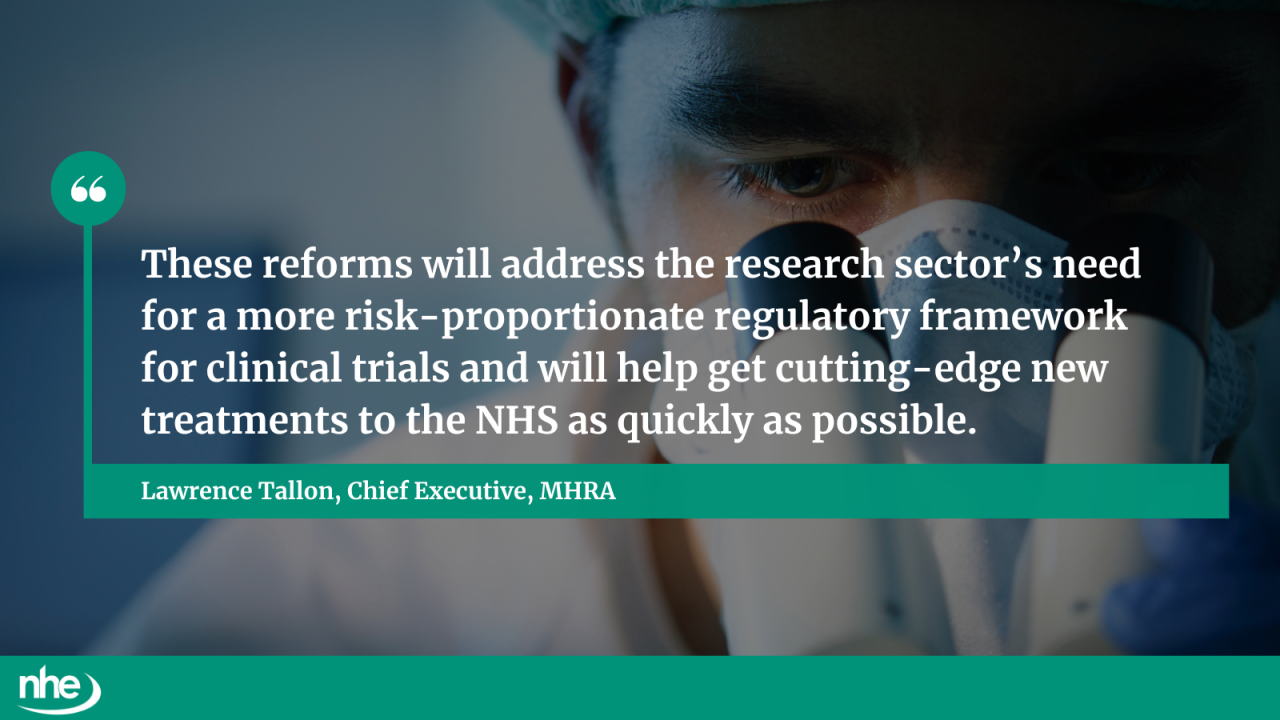The Medicines and Healthcare products Regulatory Agency has announced significant progress in modernising the UK’s clinical trials framework, marking the most substantial update in two decades.
The announcement, made on International Clinical Trials Day, highlights a shift toward a more efficient, inclusive, and participant-focused regulatory system.
The new regulations, developed in partnership with the Health Research Authority (HRA) and shaped by feedback from patients, researchers, clinicians, and industry, will come into full effect in April 2026 following a 12-month implementation period.
The reforms aim to streamline clinical trial approvals and place participants at the heart of trial design. Already, the MHRA has embedded improvements into its standard operations, with 100% of clinical trial applications processed within statutory timelines since September 2023. The average time for Combined Review determinations was just 40 days in March 2025, with all approvals completed within 60 days.
To support more representative research, the MHRA and HRA have also launched a pilot Inclusion and Diversity Plan, shaped by input from over 300 researchers. The plan provides practical guidance to help sponsors design trials that better reflect the populations they aim to serve.
Lawrence Tallon, Chief Executive of the MHRA, commented:
“I’ve experienced first-hand the life-changing impact clinical research can have on patients and their families. This, combined with the benefits it brings to the economy, is why it’s so important we ensure the UK is one the most attractive places in the world to conduct trials.
“The UK is already a research powerhouse driven by innovation, with one in eight trials in the UK testing treatments in humans for the first time.
“But we want to go further. Last month, we began implementing the most significant update to UK clinical trials regulation in over two decades. These reforms will address the research sector’s need for a more risk-proportionate regulatory framework for clinical trials and will help get cutting-edge new treatments to the NHS as quickly as possible.”

In a further step toward innovation, the MHRA has launched a six-week consultation on the use of real-world data (RWD) to support external control arms in clinical trials. This approach could accelerate the approval of treatments, especially in cases where randomised controlled trials (RCTs) are not ethical or feasible.
Real-world data includes information from electronic health records, patient registries, and patient-reported outcomes, which, when analysed, becomes real-world evidence (RWE). The new guidance will support researchers planning trials that incorporate RWD to inform regulatory decisions.
These reforms reflect the MHRA’s commitment to making the UK a global leader in clinical research, ensuring trials are faster, fairer, and more responsive to patient needs.
Image credit: iStock



















